check out these Good reads!
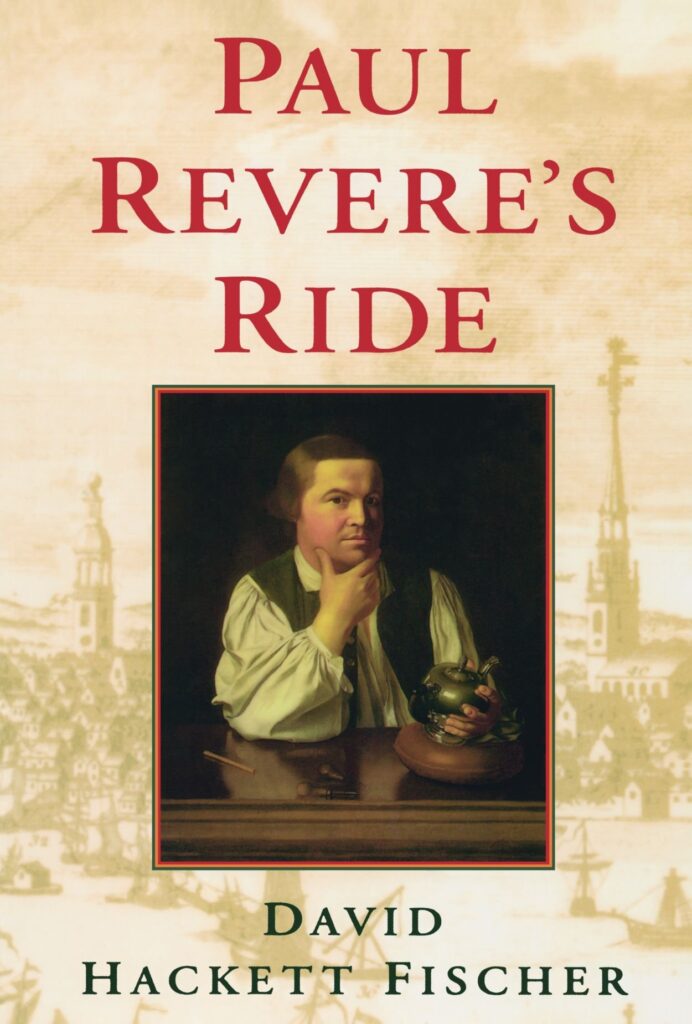
“Paul Revere’s Ride,” by David Hackett Fischer
David Hackett Fischer’s Paul Revere’s Ride is a highly engaging and readable book that brings to life the legendary midnight ride of Paul Revere. Fischer combines historical analysis with immersive storytelling, creating a compelling account of the events leading up to the American Revolution. Fischer provides readers with a renewed understanding of Revere’s role in the broader revolutionary movement. His research is thorough, and his narrative style is engaging, making this history accessible to both scholars and general readers alike. The book not only explores Revere’s ride but also goes into the significance of his actions and their impact on the overall course of American history. As we approach the 250th anniversary of the midnight ride in April 2025, this book has new relevance now, offering a timely reflection on how this event shaped the American Revolution and our national identity.
What sets this book as one of a favorite on the era is Fischer’s ability to clear up myths and misconceptions about the event. By carefully examining the historical sources, he shows how Revere’s ride has been mythologized over time, and he presents a more accurate and human portrayal of the man and his ride and subsequent events afterward. The book also discusses the contributions of other key figures who played pivotal roles in the early days of the American Revolution, such as John Hancock and Dr. Joseph Warren. His analysis is both scholarly and engaging, providing a deeper understanding of the events. As the 250th anniversary approaches, the book serves as a reminder of the lasting legacy of that fateful night and its continuing significance in American history.

“Making the Presidency” by Lindsay M. chervinsky
Making the Presidency is an authoritative exploration of the second US presidency, a period critical to the survival of the American republic. Through meticulous research and engaging prose, Lindsay Chervinsky illustrates the unique challenges faced by Adams and shows how he shaped the office for his successors. One of the most qualified presidents in American history, he had been a legislator, political theorist, diplomat, minister, and vice president–but he had never held an executive position. Instead, the quixotic and stubborn Adams would rely on his ideas about executive power, the Constitution, politics, and the state of the world to navigate the hurdles of the position. He defended the presidency from his own often obstructionist cabinet, protected the nation from foreign attacks, and forged trust and dedication to election integrity and the peaceful transfer of power between parties, even though it cost him his political future.
John and Abigail Adams approve! See the reel on our Instagram page.
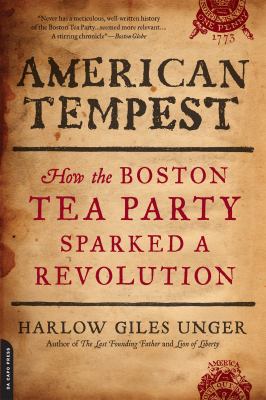
“American Tempest: How the Boston Tea Party Sparked a Revolution” by Harlowe Giles Unger
On Thursday, December 16, 1773, an estimated seven dozen men, many dressed as Indians, dumped roughly £10,000 worth of tea in Boston Harbor. Whatever their motives at the time, they unleashed a social, political, and economic firestorm that would culminate in the Declaration of Independence two-and-a-half years later.
The Boston Tea Party provoked a reign of terror in Boston and other American cities as tea parties erupted up and down the colonies. The turmoil stripped tens of thousands of their homes and property, and nearly 100,000 left forever in what was history’s largest exodus of Americans from America. Nonetheless, John Adams called the Boston Tea Party nothing short of “magnificent,” saying that “it must have important consequences.”
Combining stellar scholarship with action-packed history, Harlow Giles Unger reveals the truth behind the legendary event and examines its lasting consequence–the spawning of a new, independent nation.
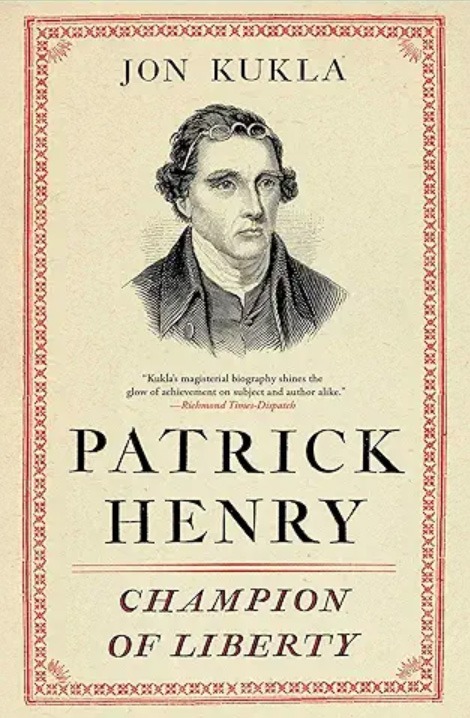
“Patrick Henry: Champion of Liberty” by Jon Kukla (2017)
This is considered to be the best biography of Patrick Henry, who, along with Samuel Adams, were two regional forces in Virginia and Massachusetts at declaring that the Colonies ought to be “free and independent” states. Jon Kukla writes a very interesting story about this Founding Father and one of the best speakers in US History.
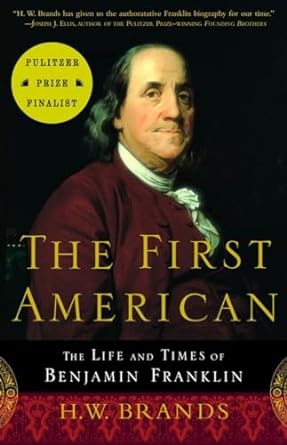
“The First American: The Life and Times of Benjamin Franklin,” by H.W. Brands
The First American is a Pulitzer Prize finalist biography that is an insightful, readable and well-rounded book that brings Dr. Franklin’s amazing life into focus. H.W. Brands portrays Franklin not just as a key figure in American history but as a complex individual who embodied the values and intelligence of the Enlightenment era. The book traces Franklin’s rise from humble beginnings in Boston to becoming a businessman, inventor, and influential diplomat (Franklin did everything). Brands also highlights Franklin’s legendary wit, curiosity, and intelligence, which allowed him to navigate personal relationships and public service with remarkable success. Through Franklin’s diplomatic efforts, particularly during the American Revolution, Brands describes his pivotal role in securing France’s support, ultimately shaping our nation’s future.
What makes this biography stand out among dozens of Franklin biographies is how Brands explores Franklin’s character with great nuance, offering insights into his evolving views on issues like liberty, science, and morality. It also paints a vivid picture of Franklin’s ability to adapt to different environments and thrive in diverse roles—from a scientist experimenting with electricity to a politician negotiating with foreign powers. Brands crafts a compelling story that not only focuses on Franklin’s public achievements but also delves into his private life, relationships, and intellectual growth. This book is a deeply engaging and engaging account, providing readers with a thorough understanding of Franklin’s profound influence on the American Revolution and the formation of the United States.

“Making the Presidency” by Lindsay M. chervinsky
Making the Presidency is an authoritative exploration of the second US presidency, a period critical to the survival of the American republic. Through meticulous research and engaging prose, Lindsay Chervinsky illustrates the unique challenges faced by Adams and shows how he shaped the office for his successors. One of the most qualified presidents in American history, he had been a legislator, political theorist, diplomat, minister, and vice president–but he had never held an executive position. Instead, the quixotic and stubborn Adams would rely on his ideas about executive power, the Constitution, politics, and the state of the world to navigate the hurdles of the position. He defended the presidency from his own often obstructionist cabinet, protected the nation from foreign attacks, and forged trust and dedication to election integrity and the peaceful transfer of power between parties, even though it cost him his political future.
John and Abigail Adams approve! See the reel on our Instagram page.

“American Tempest: How the Boston Tea Party Sparked a Revolution” by Harlowe Giles Unger
On Thursday, December 16, 1773, an estimated seven dozen men, many dressed as Indians, dumped roughly £10,000 worth of tea in Boston Harbor. Whatever their motives at the time, they unleashed a social, political, and economic firestorm that would culminate in the Declaration of Independence two-and-a-half years later.
The Boston Tea Party provoked a reign of terror in Boston and other American cities as tea parties erupted up and down the colonies. The turmoil stripped tens of thousands of their homes and property, and nearly 100,000 left forever in what was history’s largest exodus of Americans from America. Nonetheless, John Adams called the Boston Tea Party nothing short of “magnificent,” saying that “it must have important consequences.”
Combining stellar scholarship with action-packed history, Harlow Giles Unger reveals the truth behind the legendary event and examines its lasting consequence–the spawning of a new, independent nation.

“Patrick Henry: Champion of Liberty” by Jon Kukla (2017)
This is considered to be the best biography of Patrick Henry, who, along with Samuel Adams, were two regional forces in Virginia and Massachusetts at declaring that the Colonies ought to be “free and independent” states. Jon Kukla writes a very interesting story about this Founding Father and one of the best speakers in US History.
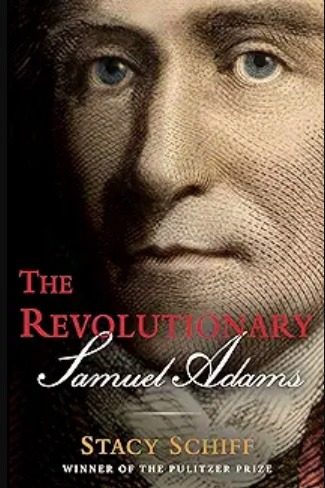
“The Revolutionary: Samuel Adams” by Stacy Schiff (2023)
This is a wonderful biography of a Founding Father who was looked at the one of the key figures in Independence in his day, but has been lost to history a bit. Stacy Schiff does an incredible job bringing him to life, as well as giving a very readable history of the era and Boston, specifically to show the events of Samuel Adams’s life and during the dawn of our nation.
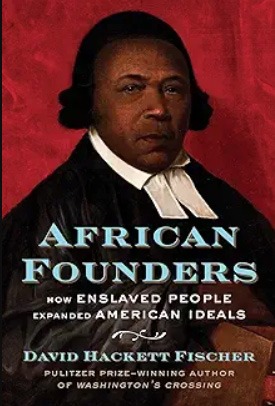
“African Founders: How Enslaved People Expanded American Ideals” by David Hackett Fischer (2022)
David Hackett Fischer is one of the preeminent scholars of the American Revolution era. Here he has compiled a history of African-American Founders and their various contributions to the founding of our nation. This book adds an amazing amount of new knowledge to help fill in gaps of the total story of the American Revolution.
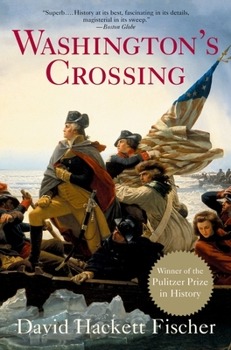
“Washington’s Crossing” by David Hackett Fischer (2004)
One of the most incredible books on the Revolutionary War Era that I have read and a masterful story of the Crossing of the Deleware River. This event, in my opinion, saved the young Continental Army and allowed them to fight another day and for 5 more years to win the war in 1781. This book teaches about all the key figures on both sides of the conflict and clarifies many of the myths surrounding the event.
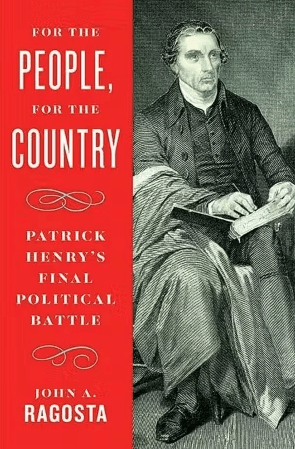
“for the people” by john a. ragosta (2023)
This book tells the story of an extraordinary letter written by George Washington to Patrick Henry in 1799, asking him to come out of retirement to defend the Constitution, which Henry did not approve of at the time of its writing. Washington was worried about threats to the new nation from Thomas Jefferson and James Madison and wanted Henry’s help to avoid the destruction of the young country. Henry steps back onto the national stage and is happy to support Washington and the Constitution. This is a fascinating story of an unknown era of one of America’s most revered Founders.
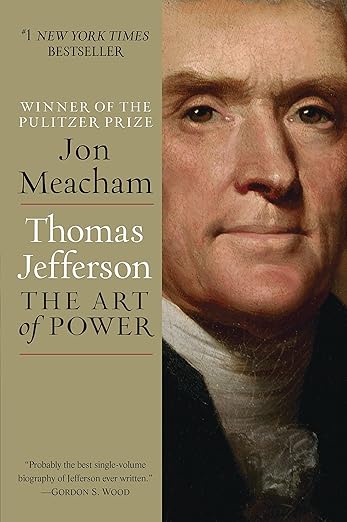
“Thomas Jefferson: The Art of Power” by Pulitzer Prize-winning author, Jon Meacham
A favorite of the many Jefferson biographies, it is a well-balanced look at one of our most important Founders. Jefferson was a complex man who crafted the most brilliant words in our history, issuing a guarantee of rights for all Americans and that those rights were given to us not by government, but by God. Jefferson comes to life as a human being, with faults like all of us. Jefferson’s many areas of expertise are discussed in the book including, his family, sciences, architecture, politics, gardening, Monticello, reading, France and French culture, and the creation of a new nation and his vision for it. Jefferson comes to life on these pages and this biography is a very worthwhile read for any student of Jefferson or the Revolutionary War era.
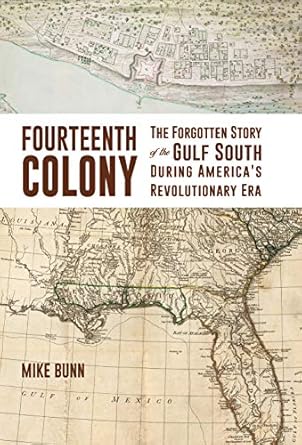
“Fourteenth Colony: The Forgotten Story of the Gulf South During America’s Revolutionary Era” by Mike Bunn
A fascinating look into an unknown part of America’s Revolutionary War era. This book is the first look at events that took place within the West Florida area, which many did not know had a Revolutionary War history. Well, it did! This region includes today’s states of Florida, Alabama, Mississippi and Louisiana. This book looks at the conflicts between Britain, France, and Spain, as well as Loyalists and Patriots for control of the Gulf South. West Florida belongs on the map of Colonial America, and Mr. Bunn places it there. This is fascinating reading that will give you new knowledge of the Revolutionary War if you are a seasoned scholar or a new student to the War. Very readable and interesting.
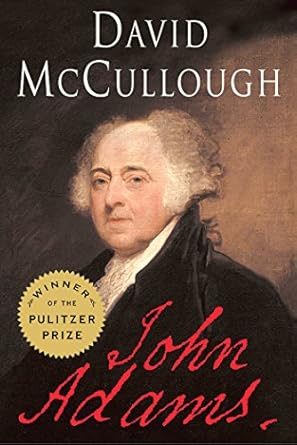
“John Adams” by Pulitzer Prize-winning author, David McCullough
This book is considered the standard biography of John Adams. It is an epic story of one of the most influential families in American history. His relationship with his wife and confidante, Abigail, is detailed here through their writings to each other throughout their life together. Adams was an opinionated and brilliant lawyer and politician who helped to create the Declaration of Independence and lead our nation through its early history. He is one of the most underrated of the Founding Fathers and McCullough gives him his rightful place in our history. Adams has not gained the notoriety of many of our Founders, but this book will educate readers on his many accomplishments in a very readable way.
